We can’t talk about Jewish movies of 5781 without talking about the Jewish movie of 5781: “Shiva Baby,” an incredibly Jewish and compelling film from 26-year-old Canadian Jewish filmmaker Emma Seligman. But there were a host of other Jewish films that debuted in this past year, plus a buzzy feature adapted from a Twitter thread (!) from Jewish director Janicza Bravo. The diversity of Jewish experience, and Jewish stories, was clear on the big screen this year — and we can’t wait to see what comes next from all these filmmakers.
Mazel tov to the winners of the Almas for the best Jewish movies of 5781:
The Best Jewish Movie
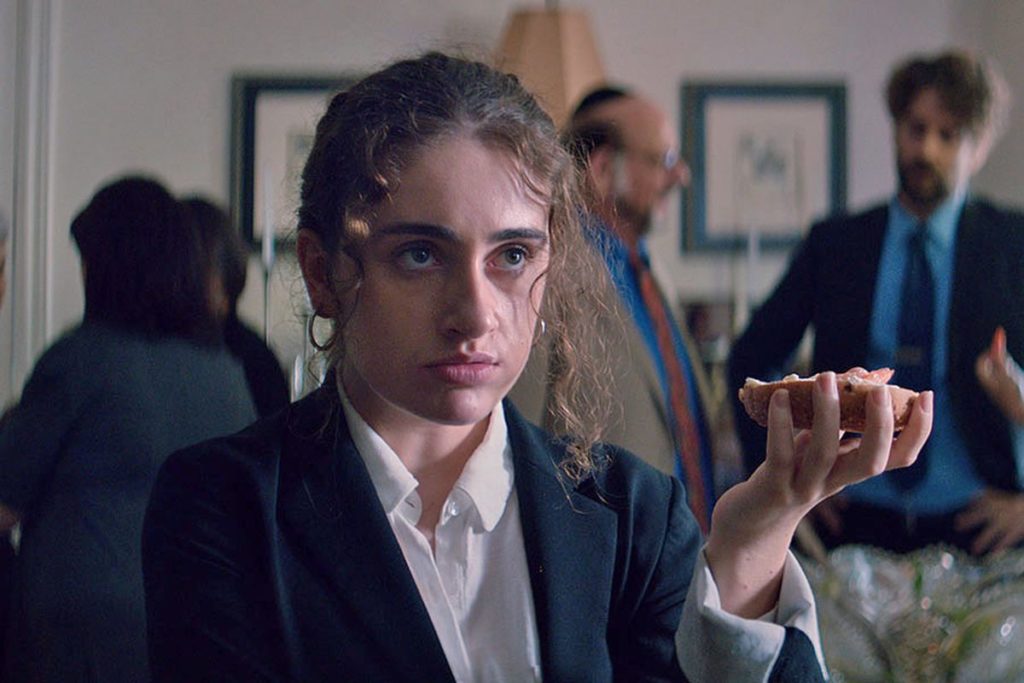
Based on the name and movie poster alone, we were pretty excited to see Emma Seligman’s debut feature, “Shiva Baby,” which the Canadian Jewish filmmaker adapted from a short film she made in college. Luckily for us (and the rest of the world), the movie lives up to its promise and then some, easily taking the slot of Best Jewish Movie of 5781 thanks to its originality, superb acting and, let’s be honest, the whole damn ~vibe~. Following Danielle (Rachel Sennott), a bisexual artist who runs into her sugar daddy at a crowded shiva for a family friend, “Shiva Baby” isn’t slated as a horror film, but might as well be. As Alma writer B.C. Wallin put it, “with tight framing, overlapping audio, loud noises, a never-ending sense of nervousness and disorientation, and that score that just keeps plucking, prodding, pushing, ‘Shiva Baby’ becomes a horror of banalities.”
In between slow-motion, almost gory shots of people stuffing their faces with bagels and lox and remarkably believable dialogue between old, familial Jews, “Shiva Baby” offers the most authentic portrayal of modern-day Ashkenazi Jewish culture we’ve seen on screen, as well as queer representation that feels fresh and essential. Seligman herself is Jewish and bisexual, telling Alma, “I feel like a lot of liberal Jews, at least in my community, love to pride themselves on being queer-friendly. But, when their kid is queer, or someone in their community is queer, it’s a little bit taboo. So, I just wanted to poke fun at and show that [on screen], speaking from my experience.” (Also, we’d be remiss not to point out the very fun twist in having Sennott, who many people assume is Jewish but is not, star as Danielle, while casting Jewish actress Dianna Agron as the Waspiest character of the bunch.)
“Shiva Baby” asks what would happen if you take a young woman, already a ball of neuroses, and stick her in a nightmare come-to-life (while her parents and all their friends are there). The results are masterful, riveting and so very Jewish.
Bonus: an acceptance speech from Shiva Baby” director Emma Seligman!
The Best Jewish Director
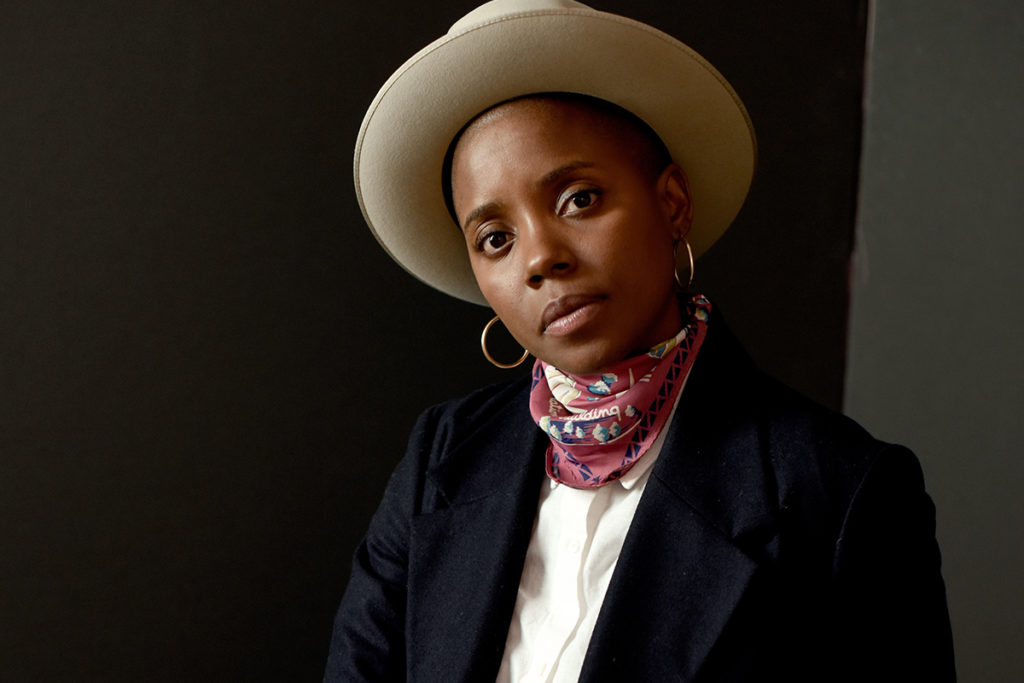
Is it really possible to turn a viral Twitter thread into a successful feature film? Yes, if you’ve got Janicza Bravo on the job. Bravo is the director of “Zola,” based on the 2015 Twitter thread by Aziah “Zola” King, a waitress and part-time stripper in Detroit who goes on a whirlwind trip with her new friend and fellow dancer to Tampa to disastrous results. The film and the thread begin the exact same way, with Zola saying, “Y’all wanna hear a story about how me and this bitch fell out? It’s kind of long but full of suspense.” The story that follows is, indeed, full of twists and turns and high-intensity drama, which means it would be easy to let the wild plot do the bulk of the film’s work. But Bravo, known for her festival-darling shorts and her first feature, “Lemon,” lets her distinctive lens and artistry shine in “Zola,” creating a truly memorable film that’s as funny and gorgeous as it is thrilling.
Bravo is a Latina Jew who grew up on an army base in Panama before moving with her family to Crown Heights, Brooklyn (“I feel comfortable saying that I might be the only black, Panamanian, Jewish woman working in comedy,” Bravo once told Vulture). She’s previously spoken about how her identity has come as a surprise to many people, like the critics who accused “Lemon” of toying with antisemitic stereotypes; she told the New York Times, “I think people felt I was treading in territory that wasn’t mine to tread. And rather than the audacity being celebrated, the audacity was met with hostility.”
With “Zola,” it’s clear that Bravo has established herself as a major cinematic voice not to be missed. Hypnotic landscapes, punchy voiceovers and unexpected point-of-view shifts create a fever dream of a movie in a tight 90 minutes. We should all be so lucky to have our tweets turned into high art such as this.
The Best Jewish Short Film
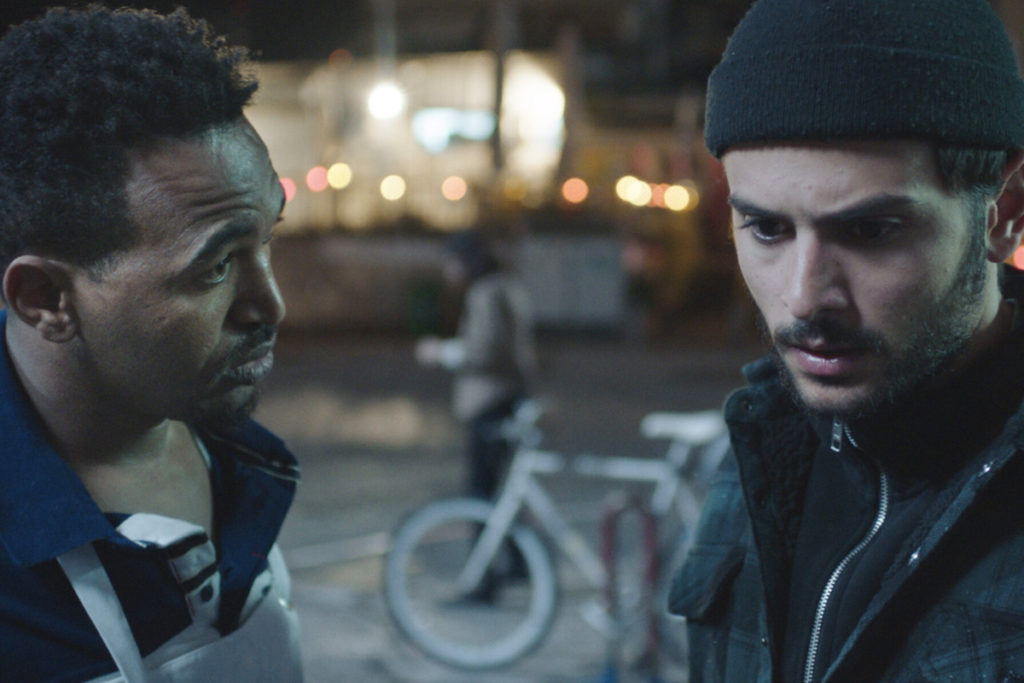
This category’s winner, “White Eye,” is not only the best Jewish short of the year — it’s one of the best shorts of the year, period. And we’re not the only ones who think so: the Academy nominated “White Eye” for a 2021 Oscar. The film, by Israeli writer and director Tomer Shushan, is based on an experience the director had when he found his stolen bike locked up on a street corner. “I just couldn’t believe that I couldn’t control myself and let my instincts maybe ruin someone else’s life and run over all my values,” he told Alma.
What begins as a fairly straightforward predicament escalates breathlessly over the course of the movie’s 20-minute runtime. Shot in a single take, the film traps the movie’s protagonist, and the viewer, in a relentless Rube Goldberg machine where one action instantly triggers a chain of unforeseen consequences. The central character starts out feeling that he’s been wronged — but as the film unfolds and he finds himself interacting with Israel’s refugee community, he realizes that he may be incorrectly framing the injustice. In its brief duration, “White Eye” does what much of the best art does: address pressing moral questions of our time without preachiness, through the specific, present-tense story of one person.
The Best Jewish Foreign Language Film
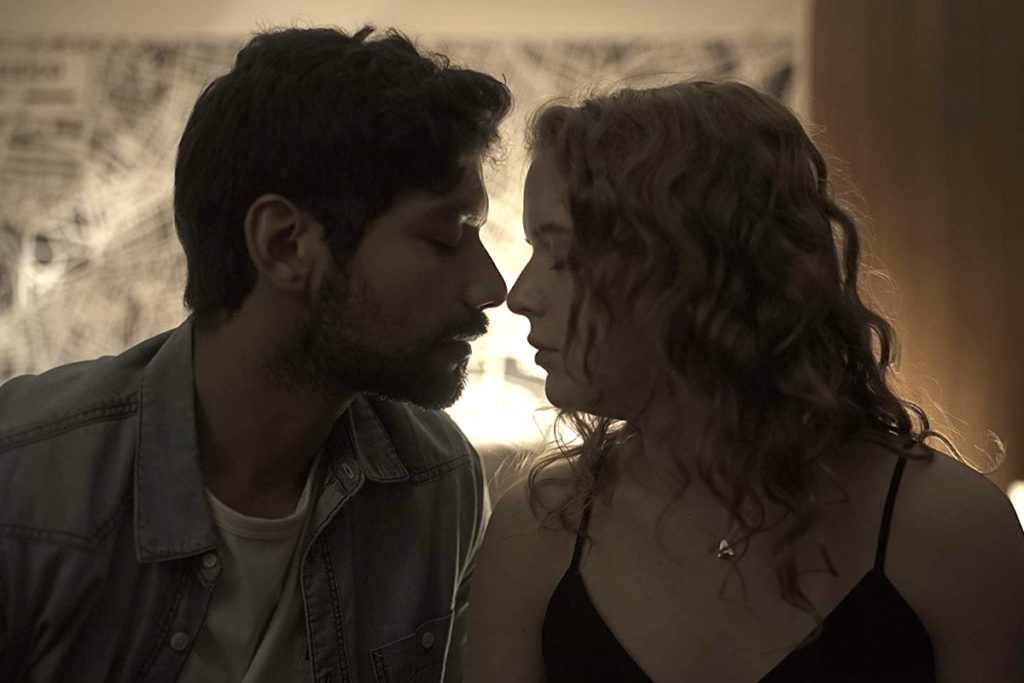
The winner of the Best Foreign Language Film is a first feature that covers familiar ground: A young artist comes of age, forced to choose between passion and family. But it differs in one major way from most films of its type: Its protagonist is a young, observant Jewish woman. “Leona” takes place in Mexico City’s Syrian Orthodox community, and is based in part on director Isaac Cherem’s experience growing up in a closed enclave within a diverse and vibrant metropolis. Protagonist Ariela has always been a bit unusual for her surroundings: a mural artist, she paints in neighborhoods her family rarely visits. But her major rebellion begins when she meets Ivan, a non-Jew with whom her chemistry is undeniable. “As soon as she meets him, he opens her eyes to a totally new world, Aladdin-style,” Naian Gonzalez Norvind, who plays Ariela, tells Alma. “She goes against her own fear of disappointing her community.”
The film, which is critical of the community it portrays, stirred up controversy which culminated in a rejection from Mexico’s oldest Jewish film festival. But that didn’t stop the film from getting out there and reaching its audience: Cherem set out to create a film to which anyone, across cultures, could relate. “No matter where you come from, whether you’re Jewish or sectarian or atheist or grew up in an artistic family, there’s always pressures of some type, to live up to someone’s expectations. It’s important to make [these expectations] conscious and then decide if that’s what you want or not… I think that’s kind of what Ariela’s path is,” Norvind said. When Cherem, who no longer considers himself religious, speaks of Ariela’s newfound freedom, he could just as easily be talking about himself: “She’s taking her life in her hands for the first time in making the decisions… And sometimes that means to disappoint. You have to be responsible for your own life. It’s ultimately liberating.”
Bonus: an acceptance speech from “Leona” director Isaac Cherem!
The Best Jewish Documentary
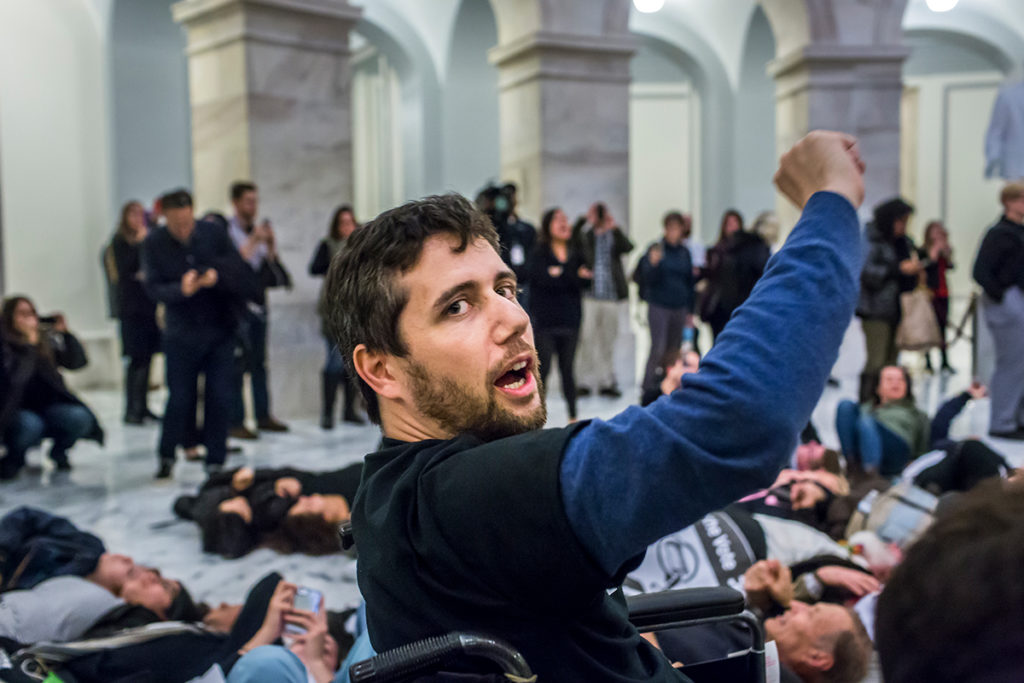
The first image of “Not Going Quietly,” this year’s Best Jewish Documentary, shows Jewish activist Ady Barkan on D.C.’s national mall. He advances towards the Capitol, where he will soon testify at the first-ever Congressional hearing on Medicare for All. In his motorized wheelchair, he steadily approaches the building’s famous, looming steps. This opening wordlessly previews the story of the film: how this man persists in the face of huge national — and personal — obstacles.
“Not Going Quietly,” directed by Nicholas Bruckman, introduces its audience to Ady, now 37, a charismatic activist and lawyer who was diagnosed with ALS in 2016 shortly after the birth of his first child, Carl. Ady first captured national attention in 2017, when he confronted Senator Jeff Flake on a plane in an attempt to save the Affordable Care Act; the video went viral. The film centers around two major moments of activism: the national “Be a Hero” tour Ady undertook in 2018 to talk about healthcare in advance of the midterm elections, and his 2019 testimony at the Medicare for All hearing. But it isn’t just a political piece; it’s also a beautiful portrait of Jewish family and fatherhood, even under difficult circumstances. As Ady’s capacity for speech deteriorates, his young son talks more and more, and the contrast is deeply moving.
Most of all, “Not Going Quietly” is the story of a man who’s been, in many ways, prescient about the healthcare crises that would befall our country — and it’s definitely worth a watch.
Bonus: an acceptance speech from Not Going Quietly” director Nick Bruckman!